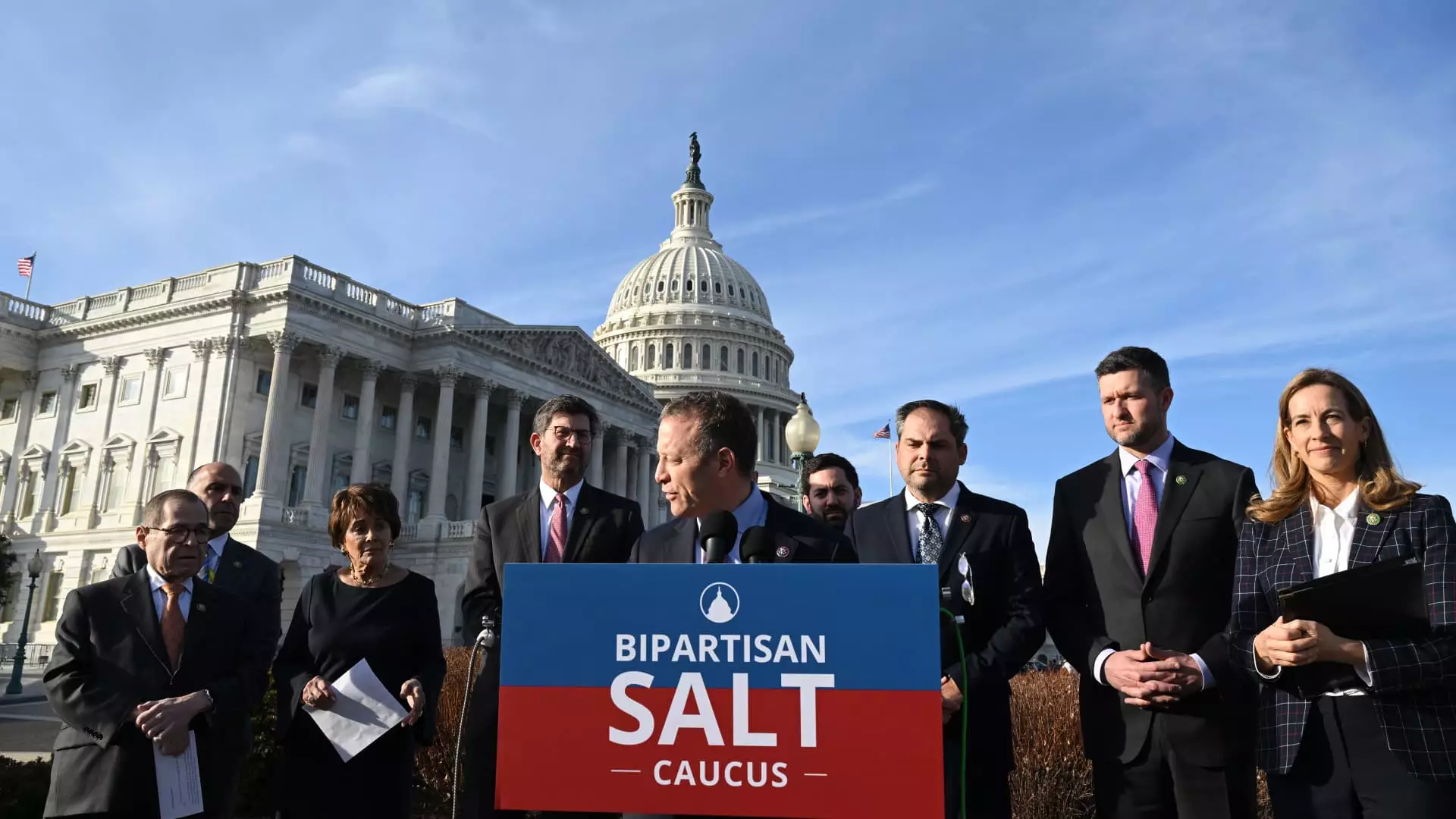The federal deduction cap placed on state and local taxes (SALT) has emerged as a significant hurdle in the ongoing tax negotiations anticipated for 2025. The Tax Cuts and Jobs Act (TCJA), enacted back in 2017, imposed a $10,000 limit on the SALT deduction, an issue that became particularly contentious for residents in higher-tax states like California, New Jersey, and New York. The cap means that taxpayers are restricted from deducting the full breadth of their state and local levies, which includes various income and property taxes—placing a heavier burden on those who are already financially strained.
This limitation fundamentally shifts the tax landscape, favoring lower-tax states while punishing those living where public services often come at a premium. The SALT cap exemplifies how tax policy can disproportionately affect different demographics based solely on their geographic location. Prior to the TCJA, the SALT deduction allowed for unlimited deductions, although the benefits were mitigated for higher earners due to the alternative minimum tax. The stark transition from an unrestricted cap to a meager $10,000 limit is a significant peril for many working families who reside in high-tax areas, forcing them to either adjust their financial strategies or face increased tax liabilities.
The Political Tug-of-War Over SALT
As the clock ticks towards 2025, it’s evident that SALT will remain a pivotal talking point in Congress, with plenty of back-and-forth expected as policymakers navigate conflicting priorities. The Republican agenda could include adjustments to SALT, primarily due to its status as a major revenue raiser. Nonetheless, those discussions are laden with complications—especially with a limited federal budget and the competing demands of other tax reforms that Republicans want to push through.
Donald Trump, despite having previously endorsed the $10,000 cap, has recently positioned himself as an opponent of that limit, stoking debates around whether he’ll seek to bring back the full SALT deduction should he win re-election. This kind of flip-flopping reveals a deeper issue in American politics: the tendency to wield tax policy as a political tool rather than as a genuine avenue to enhance the welfare of all citizens. Trump’s remarks on the subject—expressing a desire to see reform alongside assorted budget limitations—place him in a precarious situation, forcing him to appease both high-tax state constituents and fiscal conservatives who view the SALT limits as a necessary fiscal constraint.
Economic Consequences and the Future of Tax Policy
The reality that the SALT cap and other tax breaks initiated by the TCJA will expire by 2025 adds urgency to these discussions, particularly as lawmakers have proposed various reforms to adjust the $10,000 cap. One such proposal suggests raising the limit to $20,000 for married couples, which would cost the federal budget an additional $170 billion, further complicating the fiscal landscape.
While some proposals to increase the SALT cap might seem appealing, especially to those in high-tax states, it is important to consider the broader economic impact. Extending individual and estate tax provisions would similarly diminish revenue by approximately $3.9 trillion over the next decade. As Congress implements tactics like “reconciliation” to rapidly enact tax policies, genuine equity and fair distribution of tax burdens become increasingly less likely.
Indeed, if legislators do choose to implement SALT adjustments, it begs the question of who will bear the cost of such decisions. Balancing tax relief for a specific demographic while maintaining overall revenue levels is no small feat and suggests a deeper systemic flaw within the current fiscal framework. Ultimately, lawmakers need to critically assess the implications of their decisions: will tax reforms genuinely alleviate the financial strain on American families, or will they simply create a more significant divide in the socio-economic fabric of our nation? The future of tax policy teeters precariously at this crossroads, demanding transparent and responsible deliberation.

